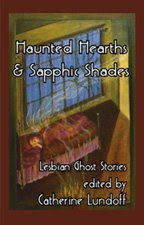I recently read L if For Leather for my April review at Erotica Revealed. (The website has been updated and looks fantastic). One of the stories in the anthology is Mike Kimera's Other Bonds Then Leather. In my review, I talked about how Mike's strength has always been his characters. They are pitch-perfect. They talk, react, and think like real people.
Writers, good ones, read a lot. I'm sure that poor writers read a lot too, but I cringe whenever a writer (usually a very poor one) comments that s/he hardly ever reads. How does s/he ever expect to improve his/her craft without reading? It isn't about imitation. It's about reading a well wrought piece of work and reflect one what made it so good, and then applying that to one's own writing.
After reading Mike's story, I went back to the piece I'm working on. The first thing that struck me is that my narrator is off-pitch. The language I'm using for his thoughts doesn't match with his background. So now I'm going through each line and working to keep the same ideas but express them in words that a former street kid would use. I'm not dumbing him down. I'm just simplifying his vocabulary. That doesn't make what he thinks and feels any less complex.
It seems as if a writer can say "This is so because I say it is," but the truth is that readers will only suspend disbelief for so long before they lose patience. The craft isn't really about making them suspend disbelief as much as it is pulling them into a world and then not jarring them out of it. That's the unforgivable sin. And the quickest way to do it is pull a deus ex machina, or make your characters behave, well, out of character (unless it's part of the plot and you spend the rest of the story convincing the reader that uncharacteristic moment was actually in character, but that's such an awful lot of work).
Setting doesn't have to seem real. Speculative fiction (that's science fiction and fantasy to you non-geeks) proves that. Plot doesn't even have to be terribly real either (how many dead bodies turn up in locked rooms in English country houses during dinner parties in real life?) but you better keep up a relentless pace, because the moment a reader gets to stop and think, they're going to. But characters - they have to be pitch-perfect, always, or nobody will believe a word you write.
Monday, March 31, 2008
Subscribe to:
Post Comments (Atom)















.jpg)











No comments:
Post a Comment